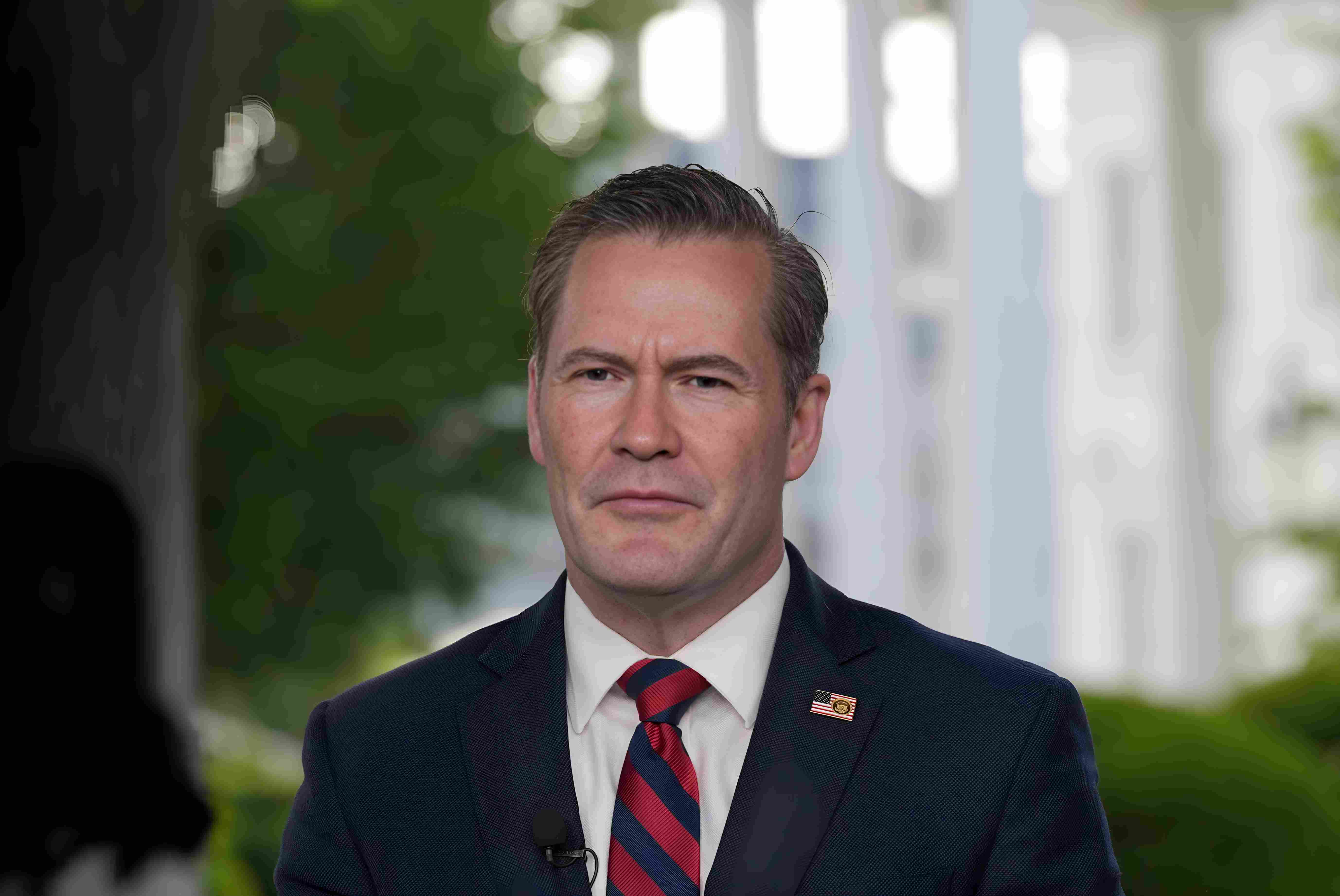US President Donald Trump has replaced Mike Waltz as national security adviser and announced plans to nominate him as the next US Ambassador to the United Nations.
Secretary of State Marco Rubio will temporarily take over the national security role while continuing in his current position as America’s top diplomat.
Waltz's sudden removal comes after a controversy involving a Signal chat group where top US security officials, including Rubio and Defence Secretary Pete Hegseth, discussed confidential plans for a military strike on Yemen’s Houthis.
Waltz mistakenly added Atlantic magazine editor-in-chief Jeffrey Goldberg to the chat, exposing sensitive information and prompting criticism from within the administration.
"From his time in uniform on the battlefield, in Congress, and, as my National Security Advisor, Mike Waltz has worked hard to put our Nation's Interests first," Trump wrote in a Truth Social post.
"I know he will do the same in his new role."
Waltz later posted on X, saying, "I'm deeply honoured to continue my service to President Trump and our great nation," alongside a screenshot of the announcement.
According to CBS News, the decision to move Waltz to the UN role was made only hours before the official announcement on Thursday.
The network reported that while the Signal chat leak played a central role in Waltz's ousting, there were also concerns within the White House that he had not thoroughly vetted members of the National Security Council.
Despite these concerns, sources said Trump wanted to give Waltz a “soft landing” by offering him a high-profile diplomatic role instead of directly dismissing him.
However, other US officials told the BBC that nominating Waltz for the UN role could be a way for Trump to ease him out entirely, anticipating resistance during the Senate confirmation process.
Waltz is the first senior figure to exit the Trump administration in the president’s second term.
His departure revives memories of the high turnover seen during Trump’s first term, where four national security advisers came and went. One of them, John Bolton, later wrote a critical book about the former president.
On Thursday, Bolton told the BBC that the latest move "echoes the chaos" of Trump’s earlier administration.
The status of Waltz’s deputy, Alex Wong, remained unclear on Thursday. Wong, who also participated in the Signal group chat, is a veteran of Trump’s first term. During an appearance on BBC’s Newsnight the night before, Wong defended the administration’s military campaign in Yemen, saying, "The president led on that."
Lawmakers had already questioned some participants in the Signal chat during hearings in March, including the directors of the CIA and national intelligence.
These discussions have placed further scrutiny on how the administration handles sensitive information.
Trump had initially nominated Elise Stefanik, a congresswoman from New York, for the UN ambassador role, but later withdrew her name due to concerns from Republican lawmakers about maintaining their narrow majority in the House of Representatives.
The post has remained unfilled since then.
As news of Waltz’s reassignment spread, Minnesota Governor Tim Walz, a Democrat, mocked the situation on social media with a post reading, “Mike Waltz has left the chat.”
Waltz has apparently continued using the Signal app despite the controversy.
A Reuters photographer captured an image of him at a cabinet meeting on Wednesday checking his phone, showing an active conversation with a contact named JD Vance, the current US vice-president.
In the message, the Vance contact said, "I have confirmation from my counterpart it’s turned off. He is going to be here."
Vice President Vance addressed the issue during a Fox News interview on Thursday evening, pushing back on the notion that Waltz had been dismissed.
"I like Mike," said Vance. "I think he’s a great guy. He’s got the trust of both me and the president. But we also thought that he’d make a better UN ambassador as we get beyond this stage."
The appointment of Rubio to the dual role of secretary of state and national security adviser came as a surprise to State Department officials.
He now becomes the first person to hold both positions since Henry Kissinger did so in the 1970s.
Rubio is currently also acting head of the United States Agency for International Development and the National Archives, placing him in charge of several key institutions during a time of administrative transition.
In the wake of Waltz’s departure, speculation has begun about who might eventually take over the national security adviser role permanently.
One possibility is Steve Witkoff, a real estate developer and Trump ally who now serves as a US Special Envoy to the Middle East.
Another name being mentioned in Washington circles is Ric Grenell, a special envoy with more extensive diplomatic experience.

